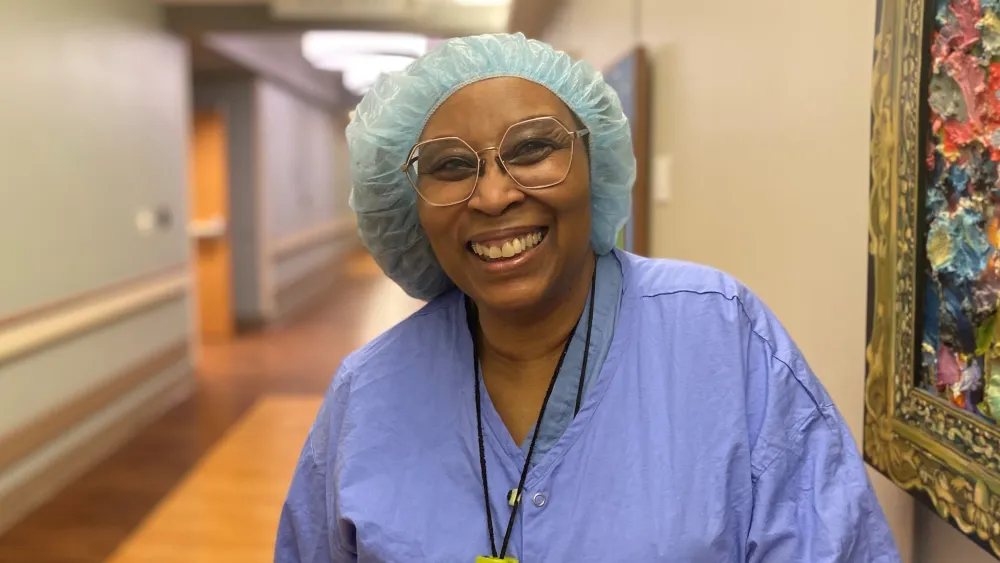Our People
Why I Came, Why I Stayed: Willa Brown Reflects on 46-Year Career at Methodist
Published: Aug. 17, 2023

In “Why I Came, Why I Stayed,” you’ll get to know people who are making a difference every day at Methodist and how they contribute to providing The Meaning of Care. To explore career opportunities at Methodist, visit bestcare.org/jobs.
Willa Brown
Lead Sterile Processing Tech
Methodist Hospital
Tell us more about yourself and your background.
I attended Burke High School and was missing one credit needed to graduate. I then attended and graduated from Central High in the summer of 1977. That August, I started here. Now, after 46 years, I’m retiring on Aug. 31.
Outside of work, I enjoy spending time with my boyfriend, fishing and working out – especially MixxedFit classes and Zumba in the pool. I also love traveling. I’ve been to Alaska, Canada, Jamaica, the Bahamas and the Cayman Islands.
Leaving Methodist will be bittersweet, but I’m looking forward to what’s next. I want to go to the gym more often, and I’d like to travel more – somewhere in Europe maybe.
What brought you to Methodist? Tell us about your time here.
I started at Methodist Hospital in 1977 as a laundry attendant. I was looking for a job, and a friend of mine who worked at Methodist said there was a job available. I applied and got hired, but I didn’t know how long I would stay.
I actually almost became an airline stewardess, but I hate flying. I started working here, and I did some stewardess training in Omaha, but the rest was in Texas. I backed out because I would have had to fly to get there.
After a few years as a laundry attendant, I moved to sterile processing and worked in the decontamination area – which is interesting. You have to suit up like you’re at a nuclear power plant. The instruments are coming to you bloody or with bioburden on them.
Over the years, I’ve worked in a number of areas in the department. I ordered surgical instruments and other supplies, and I was the liaison for the operating room team for a few years.
In the early 1980s, I moved over to the “clean side.” I learned how to process instruments and became certified. This includes checking instruments to make sure they're free of bioburden, putting sets of instruments together and sterilizing them. I’ve been in my current role since 2004.
This is such an important area at the hospital. It could be a life-or-death situation if we don’t do our job. You want to make sure that everything works and that everything is there for that patient. That patient could be your mother, your brother, your sister, your father.
What is it about Methodist that keeps you coming back?
During my 46 years at Methodist, I’ve gained a number of skills and experienced substantial growth and development. I got up every morning and came to work every day. Some days I was tired, but I got up anyway. The thing that made me get out of bed was knowing that I get to work with people who care about what they do and take pride in the craft. This is a job that contributes to society.
I’ve met a lot of good people here through the years, and a lot of good people have helped me along the way – from administration and all the way down. Maybe that’s what encouraged me to stay.
My time is coming to a close, but I recommend that more people get into this field. With all the changes in technology and new things that we have to learn how to do, it’s going to be challenging but rewarding.
I came to Methodist looking for a job, but what I found was a career. I didn’t know if I was going to like this job. But the longer I worked and the more I was learning, I found out that I love processing instruments. The longer I did it, well, the rest is history.

